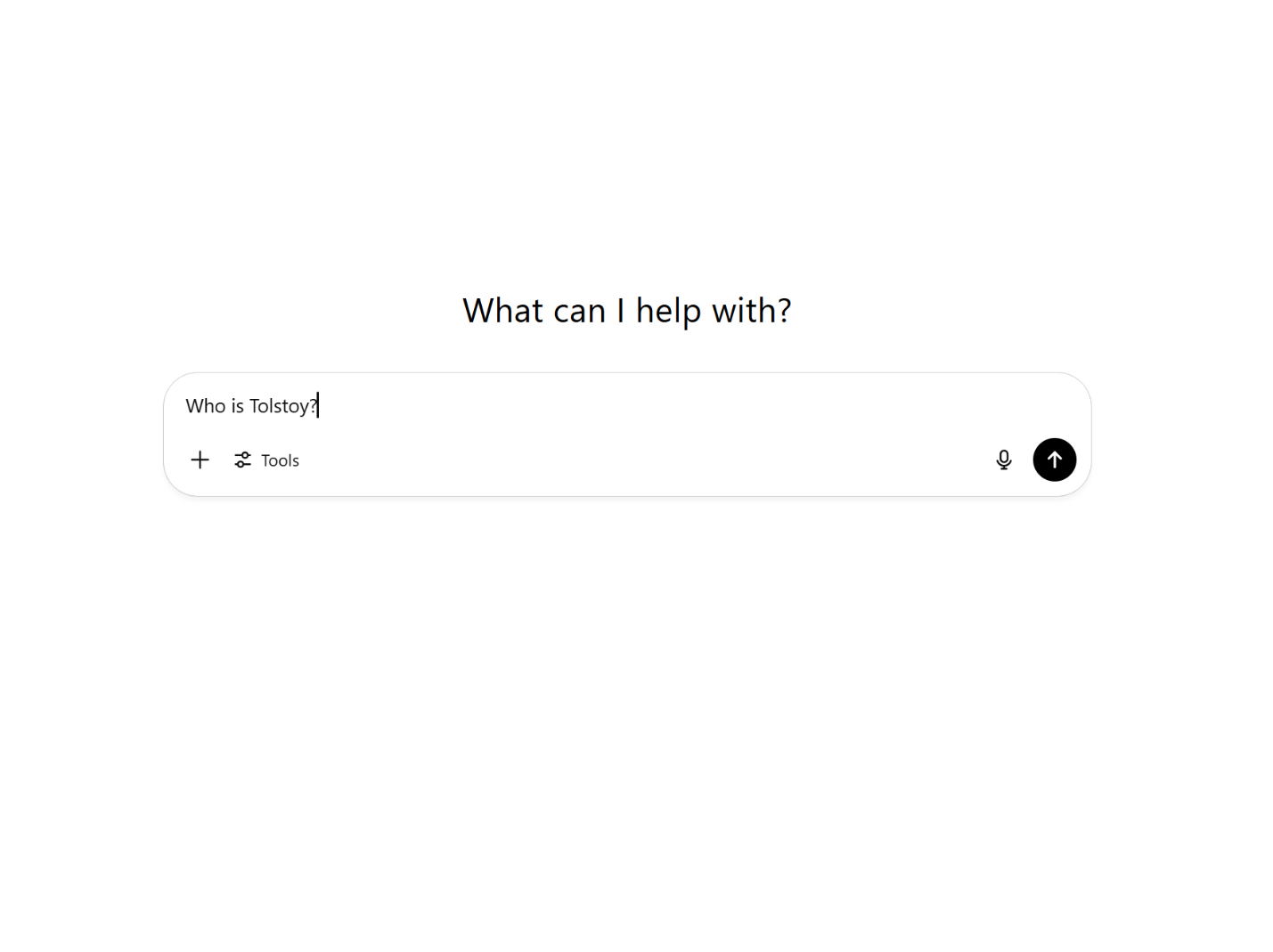
I thought that we had hit rock bottom with English pedagogy when the National Council of Teachers of English proclaimed in 2022 that “the time has come to decenter book reading and essay writing as the pinnacles of English language arts education.”
Nope.
There’s a new plague on the rise in English classrooms, and it might be infinitely worse—AI-adapted texts.
Reporting for the Boston Globe, MG Prezioso notes the rise of “AI-driven adaptive texts” in high school classrooms, with 25 percent of surveyed teachers using AI tools for their “instructional planning or teaching.” While Prezioso rightly notes that such “tools” will “affect students’ love of reading,” she is overly generous in her assessment of the outcome of AI-adapted texts on student learning. Such AI-generated texts won’t just diminish student love for literature—they will obliterate their ability to engage with literature entirely.
Prezioso cites a study that lauds the potential for AI to “enhance reading comprehension” in students of all reading levels. The rationale behind using AI to adapt so-called complex texts is that every student will have a chance to engage with these texts and to understand them. But what these instructors and researchers fail to understand about literature is that it is not solely about understanding what happens in the story but also about living through the experiences of the characters and thereby developing a unique capacity for empathy.
In a 2015 essay for Commentary, Northwestern professor and literary critic Gary Saul Morson highlights the exigency for students to read and live through the original work of literature rather than resorting to Wikipedia or SparkNotes summaries. Writing in 2015, Morson could not have predicted the calamity that has now set over English classrooms, where students are not only asked to read summaries of a given work of literature but are also assigned completely adulterated versions of a beautiful original work of art. While it may be true that students will receive the same plot points through AI-adapted texts, they will miss out on the beauty of the language and the experiences of each literary character as reflected through the author’s diction and style.
Morson, for instance, gives this example from Anna Karenina:
Early in Anna Karenina, there is a remarkable scene in which Levin comes to propose to Kitty, who plans to refuse him. But when she sees him, she is shaken: ‘And then for the first time the whole thing presented itself in a new, different aspect; only then did she realize that the question did not affect her only—with whom she would be happy, and whom she loved—but that she would that moment have to wound a man whom she liked. And to wound him cruelly.’
Morson tells us that Tolstoy’s passage forces us to live through Kitty’s empathy with Levin when he comes to propose to her, allowing us to uniquely understand what it is like to feel pain at the prospect of hurting another person. Reading through Tolstoy’s original passage, I feel almost physically moved by Kitty’s decision, especially by the biting, final line: “And to wound him cruelly.” With that one statement, we know just how keenly Kitty must have been affected by Levin’s proposal—and we are forced to consider our own actions consequently. Indeed, reading literature is not just about empathy but also about finding virtue in our own lives. “Empathy,” Morson tells us, “is not all of morality, but it is where it begins.” Reading literature, therefore, not only helps us to become more empathic but also to become better people, guided by the highest standards of virtue.
[RELATED: We Need to Do Something About Student Writing]
Now, let’s contrast Tolstoy’s original with the following version of the excerpt generated by feeding ChatGPT the prompt “Can you create an AI-adapted version of this passage from Anna Karenina to increase accessibility?”
For the first time, she saw the situation differently. It wasn’t just about her own happiness, or who she truly loved. She now understood that her choice would deeply hurt someone she cared about—and the hurt would not be small, but sharp and painful.
One can imagine that AI-adapted texts in the classroom are of a similar nature. Yes, we understand from this version that Kitty has second thoughts about her initial decision to refuse Levin, but are we really moved by ChatGPT’s assertion that Kitty “saw the situation differently”? I, for one, am not nearly as touched. Had I read the AI-adapted version of Anna Karenina, I am certain that the story would not have stayed with me so poignantly over a decade later. I would have read the summary, and it would have been forgotten. And to do so is to completely miss the point of great literature.
What English teachers ironically do not understand is that so much of the value of literature is embedded in the language that an author uses to describe a given event. What separates a truly great writer from a mediocre storyteller is not necessarily originality of idea but style. Shakespeare, after all, had no original ideas of his own—nearly all of his plots and stories were repurposed from other sources. But the reason that we read the Shakespearean version of Hamlet as opposed to the original “Ur-Hamlet” is because Shakespeare brilliantly uses language to probe at a deeper level of character psychology—a layer that does not come across with a simple summary of the Prince of Denmark’s demise. What we owe to students, therefore, is not to sink down to their reading levels but to elevate every student’s reading ability to allow them to be uniquely moved by the very words that moved generations before them. As one educator I spoke to reflects, “If a student isn’t ready to read and understand The Great Gatsby, there are a number of other texts you might have them read. Plus, the only way to get good at reading challenging literature is to, in fact, read it.”
To replace great literature with AI-adapted summaries is more an act of erasure than it is one of inclusion. The solution to guiding struggling readers to literary mastery is not to bring the text down to their level but to develop more solid teaching methods to allow more students to rise up to the level of the text. An education system that relies on AI-generated texts does not signify a failure of the student body—it reflects, rather, a failure in the education system itself.
Great literature was never meant to be easy—nor should it be. The beauty of great literature lies in its intellectual reward—and by stripping literature of its beauty, we are stripping students of a well of learning opportunities—both intellectually and personally. So let us not degrade the mind of the ordinary student. Even the most reluctant reader, after all, can rise to the occasion of great art—and, in doing so, rise as a thinker, a citizen, and a human being.
Follow Liza Libes on X
Screenshot of ChatGPT
